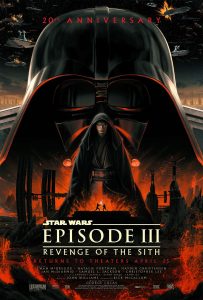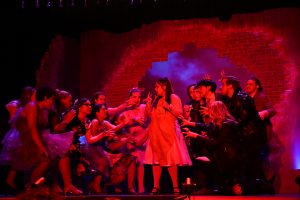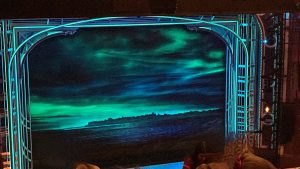On Oct. 28, Rollins students, faculty, staff and community members packed into Keene Hall to listen to the Winter Park Institute’s most recent speaker, Edward James Olmos. His event attracted the largest audience of the school year. If the name is unfamiliar, Olmos might be better recognized as Jennifer Lopez’s father in the movie Selena, or as William Adama in the beloved cult classic, Battlestar Galactica (BSG).
He also had a prominent role in Miami Vice and was nominated for an Academy Award for his role as Jaime Escalante in Stand and Deliver. But the audience did not pour into Keene merely to listen to Olmos speak about his acting career; of equal interest was his well-known social activism and speeches on diversity issues.
Olmos has been deeply involved with the Latino community, helping to rebuild areas after the Rodney King riots in Los Angeles, acting as a UNICEF ambassador, and speaking to at-risk youth in juvenile centers. Olmos received a standing ovation at a United Nations assembly in March 2009 when he gave a presentation, with the creators of Battlestar Galactica, about human rights throughout the world. Olmos’ speech equally moved the audience in Tiedtke as it did the UN.
At the start of the event, he had most of the audience confused and uncomfortable, as he spoke solely in Spanish. He welcomed everyone and thanked Rollins for inviting him, then asked anyone who understood him to raise their hands. Only a smattering of people in the audience did so, including a group of Latino students from the Hope Community Center who were invited by the Office of Multicultural Affairs.
Olmos effectively demonstrated to the audience his point about the prevalence of English and the attitude of English speakers in America. He quoted the sign above the entrance to the grade school he attended, “If it isn’t worth saying in English, it isn’t worth saying at all.”
Olmos also spent quite a bit of time talking about the concept of “race” and the fact that we misuse the word. He asserted that there is only one race, and that is the human race. What we think of as races are only cultural differences, and race is not a term that should be used as a cultural determinant.
He spoke extensively about the history of the movement of peoples, and how we came to be in America. He tied this to a speech he gave at another university, where people got up and left when he pointed out that Jesus was not white. “Jesus was from North Africa, not Sweeden,” he said. Olmos stressed the injustice of a nation that does not applaud any national hero of color except for Martin Luther King, Jr., when this nation was built on the blood and backs of people of color.
When he discussed technology, Olmos spoke highly of Rollins President Lewis Duncan, citing a conversation they had about their beliefs that in the near future people will be living to 150 years old or more. Olmos was blown away by this conversation and spent some time talking about the advancement of technology and how it will affect our lives, connecting it back to Battlestar Galactica.
Olmos spoke of many different, interesting topics, making the audience think about important issues like race, tech- perspective, I attended Halloween Horror Nights with my uncle last week. After the night was over, he decided that I just “didn’t get scared.” I laughed at the men chasing people with chainsaws and barely glanced at the people in the haunted houses. With that in mind, Phantasmagoria did, at times, utterly creep me out. “The Varney the Vampire” sequence and the accompanying dance were absolutely riveting, while the recitation of Edgar Allen Poe’s “The Raven” kept me on the edge of my seat. Overall, Phantasmagoria was excellent in some respects and horribly bland in others. I am not sure if I would see it again, but it would definitely be worthwhile to see it at least once if the show is performed again next year. nology and the health and happiness of the American people. These topic changes were fluid and only emphasized the passion that drives him.
The audience was permitted to ask questions after his presentation, and the session went over his allotted time for the audience’s desire to hear more. Olmos clearly influenced many audience members, especially the young Latino immigrants from the Hope Community Center in Apopka.
Once the talk ended, many audience members went to speak with him and ask for his autograph. BSG fans were especially noticeable with copies of the DVDs and other paraphernalia. Clearly, Edward James Olmos was a hit on the Rollins campus.







Be First to Comment